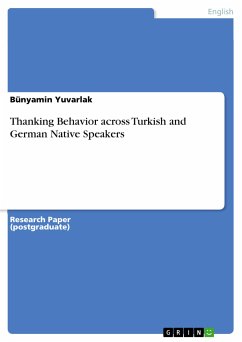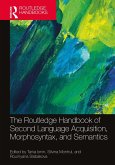Seminar paper from the year 2019 in the subject German Studies - Linguistics, grade: 1,3, University of Würzburg, language: English, abstract: In this study the author will focus on the second generation, their children, who were all born and raised in Germany, to see if the influence of the Turkish culture through their parents and the influence of the German culture which they were born into, has an effect on their pronunciation in their parent's language. Another observation that inspired this research is the following. Native Turkish speakers living in Turkey are usually quick in realizing whether or not a person is a bilingual German-Turkish person because of the way German-Turkish people use long and short vowels. The Turkish language does not have as many long vowels as the German language. Her prediction is that by being German-dominant speakers and thus being used to a stress-timed language the German-Turkish speakers will have trouble producing the right duration of vowels in Turkish. In the research the author does not only want to analyze the way German-dominant bilingual speakers of Turkish produce vowels but also see if there is any correlation between the way they see themselves in regard to the Turkish language and culture. Other researchers have also laid their focus on the concern for pronunciation accuracy or the desire to sound native-like but as afore mentioned the focus will be on the attitude towards the language and culture. Because there is hardly one dominant opinion about the influence of attitude towards the production of a language, she also hopes to help to further understand this relationship. This will also be interesting when projected to language acquisition in general. Can people who have a better attitude towards the language and culture of their target language acquire said language more easily? Can the heritage language and the dominant culture in which the learners live hinder or further the language acquisition?
Dieser Download kann aus rechtlichen Gründen nur mit Rechnungsadresse in A, B, BG, CY, CZ, D, DK, EW, E, FIN, F, GR, HR, H, IRL, I, LT, L, LR, M, NL, PL, P, R, S, SLO, SK ausgeliefert werden.









